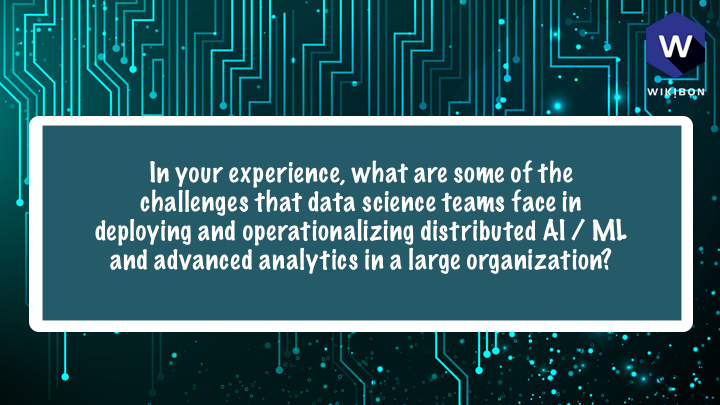How do you address the lack of skilled data scientists, engineers, and analysts? What can be done to help improve productivity and collaboration across data science teams? https://www.crowdchat.net/s/25tgs

ingrid (vdh) burton
We have H2O Driverless AI that automates machine learning for the enterprise. It helps scale an existing data scientist or data engineer to arrive at results.

contriveit
Partnering can be a quick answer to the lack of skills. That my daily job, work with customers who don't have all the tools and skills to do it for themselves.

jameskobielus
Use visual tooling that lets subject matter experts build declarative logic that drives the autoML CI/CD workflow that models, trains, and serves AI/ML assets/apps that meet business requirements and drive desired outcomes.

Tom Phelan
Tools such as H20 are helping with this

Frederic Van Haren
Using an efficient ecosystem of tools to reduce and compensate the need for skilled resources.

Mike Leone
Organizations will try to hire internally or leverage management consultancies, but professional services will be essential to guide organizations through the AI journey. 38% of organizations will turn to vendor-provided professional services and consulting.

ingrid (vdh) burton
We also need to get more people trained globally. We are working with small data science teams from Kuwait, South Africa, Paraguay, Chili, and various other countries. There is a huge need out there - across the globe.

contriveit
In the longer term clearly more skills are needed to maintain the pace of adoption. We are working with some great graduate programs to give industry experience to those fresh people.

NandaVijaydev
Data Science requires a broad spectrum of skills. It is not an individual sport. So lack of skills can be addressed by making the experts share their ideas, models, code, and docs, with the less experienced ones.

Peter Burris
Will we see "data science-as-a-service" anytime soon?

Frederic Van Haren
@jameskobielus Yes, no need to re-invent the wheel.














